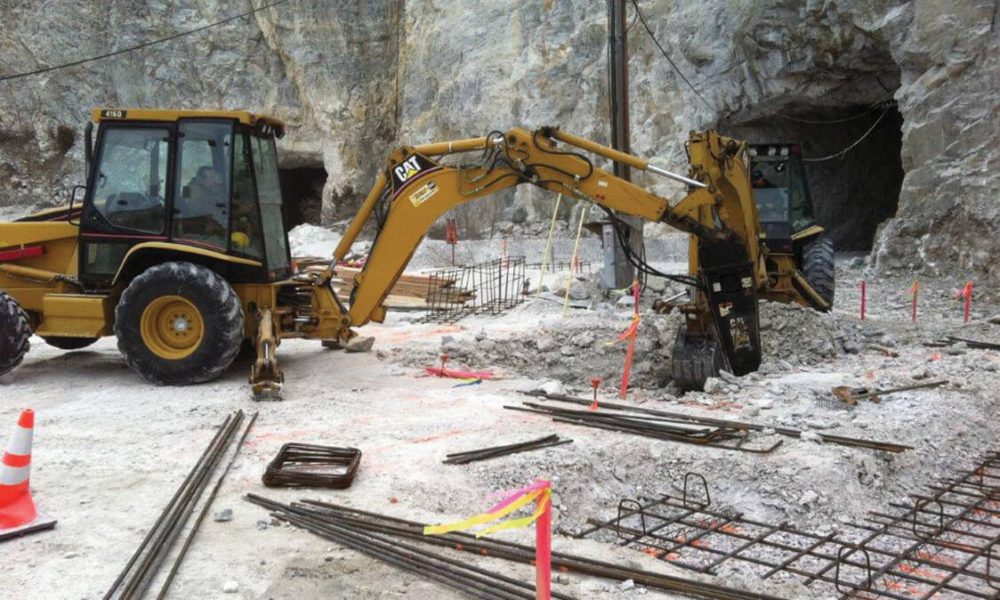Lancaster Trenching - Expert Trenching Solutions in Lancaster, Ohio
Lancaster Trenching - Expert Trenching Solutions in Lancaster, Ohio
Blog Article
Comprehensive Excavation Methods: Mastering the Basics for Success
The mindful preparation, precise implementation, and meticulous attention to information required in excavation projects demand a detailed technique that includes different fundamental aspects. The true proficiency exists not simply in comprehending these basics but in seamlessly integrating them to navigate the complexities of excavation projects with skill.
Understanding Excavation Project Preparation

Effective excavation projects are built on the structure of complete and precise planning. The first phase of any excavation task is the preparation stage, where critical choices are made that can dramatically influence the result of the job. Throughout this phase, it is necessary to collect all appropriate info about the website, consisting of topographical studies, soil composition, and any type of possible dangers that might exist. Comprehending the task timeline, scope, and spending plan restrictions is crucial for producing a comprehensive excavation plan that makes certain the job's success.
One key aspect of excavation project planning is the development of an in-depth timeline that details the series of tasks, turning points, and due dates. This timeline functions as a roadmap for the project group, permitting them to track progression and make essential adjustments to guarantee the project stays on routine. In addition, a well-defined budget that makes up all expenditures, consisting of tools service, labor expenses, and materials, is vital for avoiding cost overruns and delays. By thoroughly thinking about all these factors throughout the preparation stage, excavation projects can be implemented successfully and successfully, causing successful results.
Soil Analysis and Website Evaluation
Carrying out thorough soil evaluation and website assessment is a critical step in the prep work stage of any excavation job. Dirt evaluation involves identifying the make-up, structure, and buildings of the dirt at the excavation website. This information is essential for recognizing the soil's bearing capability, wetness web content, and possibility for disintegration, which are key factors in establishing the excavation approaches and devices needed for the project.
Website analysis exceeds soil analysis and includes a wider evaluation of the general site conditions. This assessment includes determining any type of prospective dangers, such as below ground energies, ecological worries, or unsteady terrain, that might affect the excavation process. By thoroughly assessing the site, project managers can create reliable excavation approaches that focus on security, effectiveness, and environmental management.
Utilizing innovative modern technologies like ground-penetrating radar, dirt sampling, and drone surveys can boost the precision and effectiveness of soil evaluation and site assessment. Investing time and sources in these initial steps can ultimately conserve time and stop expensive delays or difficulties throughout the excavation process.
Tools Option and Usage
Efficient excavation tasks depend heavily on strategic tools choice and utilization to make certain ideal performance and performance. Selecting the ideal tools for the task is important in making the most of effectiveness and decreasing downtime. Elements such as the type of soil, deepness of excavation, and task scope play a considerable duty in identifying one of the most appropriate tools for the task at hand.

Along with picking the ideal tools, correct application is key to project success. Operators should be trained to deal with the devices safely and effectively - septic ohio. Normal upkeep checks and prompt fixings aid protect against breakdowns and ensure consistent efficiency throughout the task
Precaution and Rules Conformity
In the world of excavation tasks, focusing on precaution and compliance with guidelines is extremely important to making certain a legitimately audio and protected operational environment. Precaution include a variety of practices, additional info consisting of carrying out extensive site assessments, applying appropriate signage and obstacles, and supplying sufficient safety training for all employees associated with the excavation process. Adherence to laws, such as OSHA demands in the United States, makes sure that the excavation project meets the needed standards to shield workers, bystanders, and the surrounding setting.

Tracking Progress and Adjusting Strategies
How can predict supervisors efficiently track the improvement of excavation projects and adapt their approaches accordingly to maximize results? Tracking progress is essential for making certain that excavation tasks remain on track and meet deadlines. Job managers can utilize numerous devices and methods to track progress, such as daily report card, routine site evaluations, and advanced surveillance technologies like drones and GPS tracking visit homepage systems. By continuously keeping track of the project's advancement, supervisors can identify any kind of prospective delays or issues early on and take positive steps to address them.

Final Thought
To conclude, grasping the fundamentals of thorough excavation methods is vital for the success of any project. By understanding task planning, analyzing soil and site conditions, selecting suitable tools, following security regulations, and monitoring progression, job managers can make certain a smooth and reliable excavation process. Applying these strategies will certainly cause successful results and lessen prospective threats or obstacles during the excavation job.
The preliminary phase of any kind of excavation project is the planning stage, where critical choices are made that can substantially affect the result of the project. Recognizing the check over here project spending plan, scope, and timeline constraints is vital for producing an extensive excavation strategy that ensures the job's success.
Just how can predict supervisors efficiently track the advancement of excavation tasks and adjust their methods accordingly to enhance results? By carefully monitoring development and being willing to adapt methods, project supervisors can enhance the overall success of excavation tasks.
By comprehending task planning, assessing soil and website conditions, picking suitable equipment, complying with safety and security guidelines, and monitoring progress, project managers can guarantee a smooth and effective excavation process.
Report this page